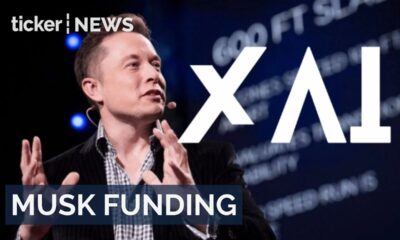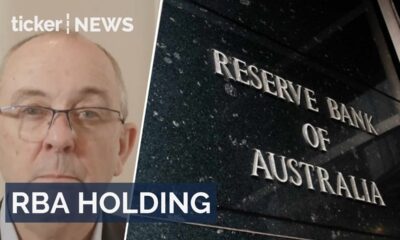Money
Updated Tesla Model 3 revealed for 2024 sale

Money
Stocks rally ahead of Thanksgiving as markets log four days of gains
Markets gain momentum ahead of Thanksgiving, with the Dow up 388 points and Oracle rising 4% amid investor optimism.
Money
Dow surges 500 points amid rate cut optimism
Dow jumps 569 points on fresh hopes for December rate cut and AI market optimism
Money
Gold prices surge as Central Banks buy big, but risks grow ahead
Gold prices surge as central banks increase demand; risks include a stronger dollar and rising interest rates.
-



 News5 days ago
News5 days agoxAI’s $15 billion raise, deadline pressure and Grokipedia launch
-



 News4 days ago
News4 days agoAre women being silenced on LinkedIn? Algorithm claims spark debate
-



 News5 days ago
News5 days agoU.S. retail sales slowdown sparks new fears ahead of Fed decision
-



 Leaders3 days ago
Leaders3 days agoRegional small businesses thrive through digital marketing strategies
-



 News5 days ago
News5 days agoRBA holds rates as investors shift from property to stocks
-



 News5 days ago
News5 days agoAustralia launches new AI Safety Institute to protect the nation
-



 Money4 days ago
Money4 days agoStocks rally ahead of Thanksgiving as markets log four days of gains
-



 Tech4 days ago
Tech4 days agoChina blocks ByteDance from using Nvidia chips in new data centres








